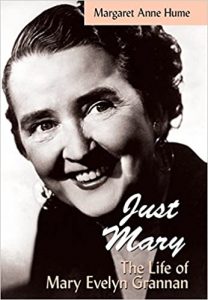A True Story about My Sister and Me
by

When an idealistic activist objects to her siblings’ plan to ship their disabled sister off to a nursing home, she’s forced to choose between family and her sister’s freedom. TRIGGER WARNING: This true story deals with dysfunctional family relationships and ableist attitudes, which some readers may find upsetting. A true story about disability, sisters, and doing the right thing, no matter what. Franke James is an environmental activist who got into trouble in her own backyard—family trouble. She objected when she heard her siblings’ plan to put their disabled sister, Teresa Heartchild, into a nursing home. Teresa, who has Down syndrome, refused to go. But the other siblings insisted and secretly put Teresa into an institution for end-of-life care. Teresa was in shock. Franke was horrified and organized a rescue. That’s when all hell broke loose. The two sisters had to stand together—against their siblings, the medical system, and the police—to defend Teresa’s right to be free. This is a true story about a key civil rights issue for all people with disabilities—the right to decide where you live.
Teresa and Bill were slowly flipping through Teresa’s calendar, chatting about events, when we heard the knock at the door. As Bill went to answer it, I kept the camera on Teresa. She was smiling happily, picking up her calendar and trophies and carrying them back to her room as Bill went to open the front door.
And there they were—two big cops, two paramedics with a stretcher, and others behind them. I caught a glimpse of my older sister, Deirdre, wearing a bulky maroon coat.
The first cop stepped in. He was bigger than Bill and looked beefy, especially with his bulletproof vest and the gun on his hip.
“Who are you?” he barked.
I heard Deirdre’s voice coming from the hallway, “That’s Bill.”
The cop immediately asked Bill to leave.
Bill backed away from the door, asking, “Can I see some documentation?”
READ MOREThe cop ignored him and took another step in. “Come on out,” he ordered. Then he spotted me—blonde hair, slim, in a long black cardigan with a red scarf—and I was holding my iPad. It was pointed right at him. He waved me towards the front door, saying, “Come on out.”
I was shocked and shook my head, no. I was not leaving. I was afraid the cops were here to take Teresa back.
Just then Teresa came out of her room, curious to see what was going on. She was born with Down syndrome and had lived with my dad all her life.
COLLAPSEMegan Beauregard (April 16, 2024) on BookTrib Review wrote:"Freeing Teresa: A True Story about My Sister and Me is the compelling saga of siblings in conflict over one sister’s disability and the right thing to do. Franke’s siblings wanted to place her Down syndrome sister Teresa in a nursing home. But Franke protested about the quality of life her sister would receive in such an institution, sparking a family controversy that extended when the siblings then chose a long-term care home that once again challenged Franke’s ideals of what her sister’s life should be. Franke and Teresa found themselves virtually alone, standing against forces of medical, legal, and psychological systems bent on declaring Teresa incompetent and institutionalizing her for the rest of her life. Surprisingly, Franke’s work as an environmental activist and the lessons she learned from that job translated nicely to her efforts on her sister’s behalf, providing a foundation of methodology, approach, ideology, and confrontation that served her well in her latest battle. From decision-making empowerment and voting rights to navigating possibilities for Teresa, Franke’s interactions with her father and siblings provides a powerful set of discourses that examine ideals, realities, and the mix of special interests and perceptions that can create a perfect storm in a family. Of particular interest are the points of contention that clearly outline different possibilities in acting and reacting to family members: “Weren’t Deirdre and Conrad still in charge? Probably, I said. But the alternative was seeking guardianship through the court system, and that could take six months or more. If we went down to Aiker Place with Dad, he could ask to see the paperwork, and maybe there would be another way. We both believed that Dad would have the moral authority as Teresa’s father and her primary caregiver. Maybe that would be enough.” From issues of control to others about empowerment and battles not only between family members, but institutions and systems designed to protect developmentally disabled individuals, Franke lays out a candid, clear course of struggle. This will engage a wide range of readers, from those coming from legal circles to families facing their own internal and external truths. The discourse tackles models of freedom, healthcare, personal choice, and more in a manner that book club reading groups (whether general-interest or with specific interests, such as psychology or legal advocacy) will find thoroughly absorbing. The result is more than a memoir: it’s a testimony to how ‘tickets to freedom’ are gained through fighting and love, displaying how Teresa’s own wishes and interests add fuel to the fire of empowerment on many different levels. Libraries will find Freeing Teresa an essential collection addition."
"When an idealistic activist objects to her siblings’ plan to ship their disabled sister off to a nursing home, she’s forced to choose between family and her sister’s freedom. “Forced care is happening to people with disabilities around the world. Most people don’t escape. And the world shrugs.” Should everyone have the right to choose where they live? The answer seems obvious — of course, choosing where you live is a basic human right. But for Teresa Heartchild, an artist, self-advocate and author who has Down syndrome, everything changed when that right was taken away from her. Teresa’s older sister, Franke James, gives a true account of the arduous path that led to Teresa’s wrongful institutionalization and eventual rescue in her memoir, Freeing Teresa. The memoir opens on the night of November 30, 2013, with cops knocking at the door. Franke, her husband Bill, and her father had just freed Teresa from the nursing home she was forced into. From that tense beginning scene, we jump backward in time to get glimpses of the events leading up to that pivotal day. Across compilations of “extensive digital records: emails, photographs, videos, audio recordings, police records, health records, court records including sworn affidavits and my journals,” readers are introduced to a cast of people — Teresa’s siblings, father, and the key players in her life. But in all images, Teresa and Franke’s siblings are blurred out, a deliberate approach to reflect their absence in Franke’s life, and their role in Teresa’s. Franke is the only sibling who supports the telling of Freeing Teresa. With an aging father and a sister with Down syndrome, this group of siblings naturally worries about ensuring their relatives are taken care of. Still, nobody is willing to step forward and do the caretaking, for fear it will interrupt the flow of their lives. Casual discussions turn to planned meetings to determine the future of Teresa and their father’s care, without either’s knowledge or consent.
Wrestling with legal rights such as the power of attorney and Teresa and her father’s right to make her own decisions, things turn dark as Franke and Bill hit dead end after dead end, until pressure spurs the couple into a final decision — to let Teresa live with them. Of course, it’s easier said than done, as the group of siblings will do anything to maintain control. Freeing Teresa depicts complex dynamics between family members and harsh ableism directed towards Teresa — but it also celebrates growth, change and humanity. Though this is a portrait of Teresa’s life, her autonomy, intelligence and endless capabilities, it also shows the transformation Franke embarks on over the course of her own life. Upon seeing Rare, a play starring several actors with Down syndrome, Franke’s eyes are opened to the endless opportunities that are available to Teresa. “It was part revelation, part reminder,” says Franke. “People with Down syndrome are just like any of us.” It will be a long and difficult road to give Teresa a life where she is free to reap all the benefits of a flourishing and self-determined life.
Franke, a career artist and activist herself, intersperses the story with details of how she was blacklisted for her climate change art by the Canadian government. It was this conflict that built the foundations of her activism — something that ultimately prepares her for the battle she fights with and for Teresa. Armed with information about Teresa’s rights, Canadian law, and a determination to record everything, Franke is prepared to do whatever she can to ensure the best possible life for Teresa, no matter what it takes. Freeing Teresa is dedicated to “those who are different” and is a refreshing reminder that people who are different deserve the same dignity and respect as any of us. Franke’s constant persistence that Teresa is so much more capable than anyone expects, and her determination to fight for her sister is inspiring. In 2023, Teresa celebrated the 10-year anniversary of her rescue. Franke’s wise words make for a touching closing thought: “The struggle for equality is never done. But sometimes by standing up for what’s right, you can make a difference.”"








